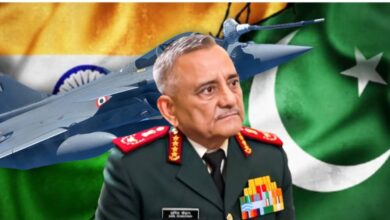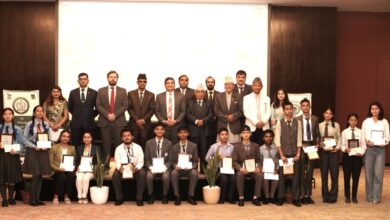Debate on Agenda is More Important than Political Slogans

# By Avinash Sharma
In Nepal’s contemporary political discourse, the issue of reinstating the monarchy frequently resurfaces. Particularly, the views of Kamal Thapa and Rajendra Lingden are often associated with monarchist ideology. However, what is the reality? Are these leaders genuinely advocating for a monarchist agenda, or is it merely a slogan?
Monarchy: Just a Slogan or a Real Agenda?
Both Kamal Thapa and Rajendra Lingden have accepted the current constitution and participated in the government. This itself clarifies their primary agenda. Before Nepal was declared a republic, the true monarchist leaders were Krishna Prasad Bhattarai and Dr. Keshar Jung Rayamajhi. When the Nepali Congress embraced republicanism, Bhattarai left the party and even refused to accept an invitation from the republican president. Similarly, Dr. Rayamajhi also distanced himself from any involvement with the presidency.
However, the stance of Kamal Thapa and Lingden does not align with this. They often raise slogans in favor of the monarchy but have not hesitated to function within the republican system. This casts doubt on their commitment to monarchy.
The French Revolution and Nepal’s Context
In France, there exists a political party that advocates for the restoration of the monarchy, yet they operate within the democratic framework. The stance of Kamal Thapa and Lingden appears to follow a similar pattern in Nepal. While they emphasize the need for a monarchy, they have not presented any concrete proposal for amending the constitution to reinstate it.
Difference Between Political Slogans and an Agenda
When Nepal was declared a republic, some media outlets portrayed then-Nepali Congress General Secretary Kul Bahadur Gurung as a representative of BP Koirala’s ideology. However, he himself announced the republic, which was contradictory. Similarly, branding Kamal Thapa and Lingden as representatives of the monarchy creates a misleading narrative.
Crucial Questions: Should the Debate Be on Slogans or Agenda?
If the debate is truly about reinstating the monarchy and the future of the nation, the following questions need to be addressed:
What is your stance on the concept of a “Cultural King” and “Baby King”?
Former King Gyanendra Shah proposed the idea of a “Cultural King” instead of outright rejecting the republic. If the monarchy is to be reinstated, is this concept practical?
The Royal Massacre of June 1, 2001, and the Role of the Military
Then-Chief of Army Staff Rookmangud Katawal stated that the royal massacre was “not his responsibility.” If the military is a key pillar of national security, what role did it play in such a significant incident?
What is the strategy when the constitution does not allow for a Hindu state or monarchy?
According to Nepal’s current constitution, reinstating the monarchy requires a two-thirds majority in parliament. Is this idea merely an unrealistic slogan, or is there a practical strategy behind it?
Who Actually Brought Republicanism?
The establishment of a republic was influenced by both domestic and international forces. The claim that the Maoists, under Prachanda’s leadership, established the republic is not entirely accurate. If the Maoists had truly been in control of the process, they would not have been forced to relinquish power when attempting to dismiss Army Chief Katawal.
Kamal Thapa’s Military Background and Role as Home Minister
Kamal Thapa comes from a military background. He was closely associated with the monarchy and even served as Home Minister. However, is he still in a position to strongly advocate for the monarchy today?
Conclusion: Agenda Matters More Than Slogans
In politics, an agenda is more important than mere slogans. If any party or leader considers monarchy as their main issue, they should present a clear and practical roadmap. Opposing republicanism while simultaneously participating in a republican government only creates confusion.
Nepal’s politics should be driven by policies and realism, not just slogans. Therefore, the debate should not be centered around the slogan of monarchy but on the real agenda of how to steer the country in the right direction.







